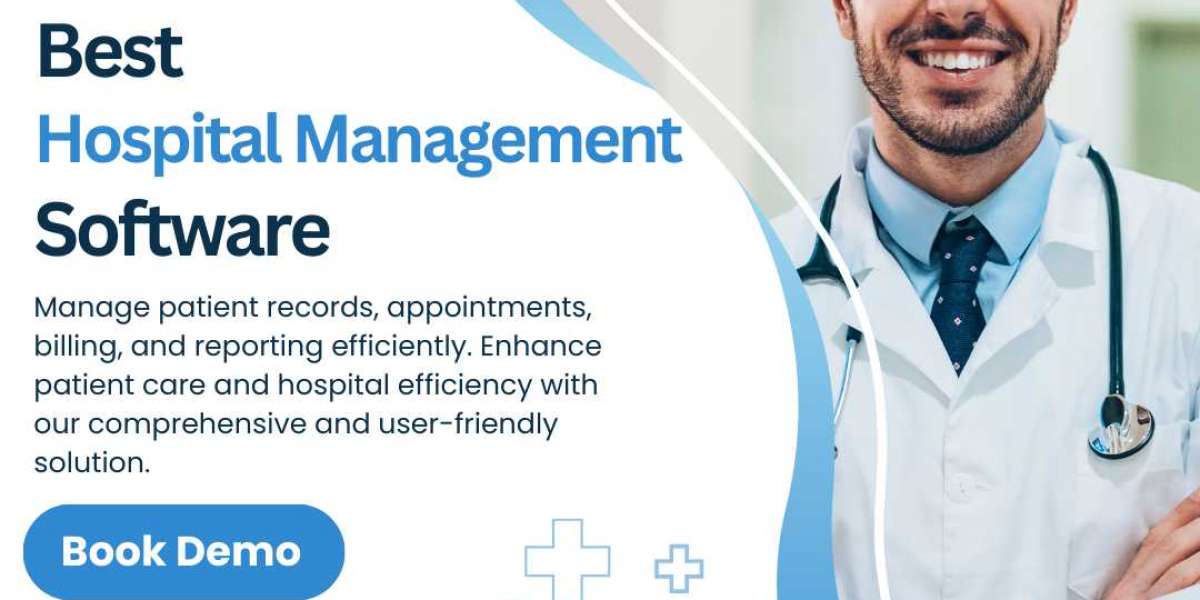The healthcare industry is constantly evolving, and technology is playing an increasingly critical role in this transformation. One of the most impactful technological advancements in recent years is the development and implementation of Hospital Management System (HMS) software. This software is revolutionizing how hospitals operate, from streamlining administrative tasks to improving patient care. In this blog, we'll explore what HMS software is, its key features, benefits, and why it's becoming an essential tool for modern healthcare facilities.
What is a Hospital Management System (HMS)?
A Hospital Management System (HMS) is an integrated software platform designed to manage the various aspects of a hospital's operations. This includes everything from patient registration and appointment scheduling to billing, inventory management, and even human resources. HMS software automates and simplifies these processes, allowing hospital staff to focus more on patient care rather than administrative tasks.
Key Features of HMS Software
Patient Management: This feature includes patient registration, appointment scheduling, and electronic medical records (EMR) management. It allows hospitals to maintain a comprehensive and easily accessible record of each patient's history, making it easier to provide personalized care.
Billing and Revenue Cycle Management: HMS software streamlines the billing process by automating invoice generation, payment tracking, and insurance claim management. This reduces the chances of errors and ensures that the hospital's revenue cycle is efficient.
Inventory Management: Hospitals need to manage a vast array of medical supplies, medications, and equipment. HMS software helps in tracking inventory levels, managing orders, and ensuring that critical supplies are always available.
Human Resource Management: Managing hospital staff, from doctors and nurses to administrative personnel, is another critical function of HMS software. It includes features like payroll management, shift scheduling, and performance evaluation.
Reporting and Analytics: One of the most powerful features of HMS software is its ability to generate detailed reports and analytics. This data can be used to identify trends, optimize operations, and make informed decisions that improve hospital efficiency and patient outcomes.
Telemedicine Integration: With the growing demand for remote healthcare services, many HMS solutions now include telemedicine features. This allows hospitals to offer virtual consultations, monitor patients remotely, and expand their reach to underserved areas.
Benefits of Implementing HMS Software
Improved Efficiency: By automating routine tasks, HMS software frees up time for hospital staff to focus on patient care. This leads to faster service delivery, reduced wait times, and a more organized workflow.
Enhanced Patient Experience: With features like online appointment booking, automated reminders, and easy access to medical records, patients can enjoy a more seamless and satisfying healthcare experience.
Cost Savings: HMS software reduces the need for manual labor and minimizes errors in billing and inventory management, leading to significant cost savings for hospitals.
Better Decision-Making: The data and analytics provided by HMS software enable hospital administrators to make informed decisions that enhance operational efficiency, reduce costs, and improve patient outcomes.
Regulatory Compliance: HMS software often includes features that help hospitals comply with industry regulations and standards, reducing the risk of legal issues and ensuring patient safety.
Why HMS Software is Essential for Modern Healthcare
As healthcare continues to evolve, the need for efficient and effective management tools becomes increasingly apparent. Hospital Management System software is no longer a luxury; it’s a necessity for any healthcare facility that wants to stay competitive and provide the best possible care to its patients.
In an era where data is king, HMS software offers the ability to harness the power of information to optimize every aspect of hospital operations. From improving patient satisfaction to reducing operational costs, the benefits of implementing HMS software are clear. As more hospitals adopt these systems, the future of healthcare looks brighter, more efficient, and more patient-centered than ever before.
Conclusion
The adoption of Hospital Management System software represents a significant step forward in the evolution of healthcare. By streamlining operations, enhancing patient care, and providing valuable insights through data analytics, HMS software is helping hospitals navigate the challenges of modern healthcare and prepare for the future. If your hospital hasn’t yet embraced this technology, now is the time to consider making the investment. The future of healthcare is here, and it’s powered by Hospital Management System software.




